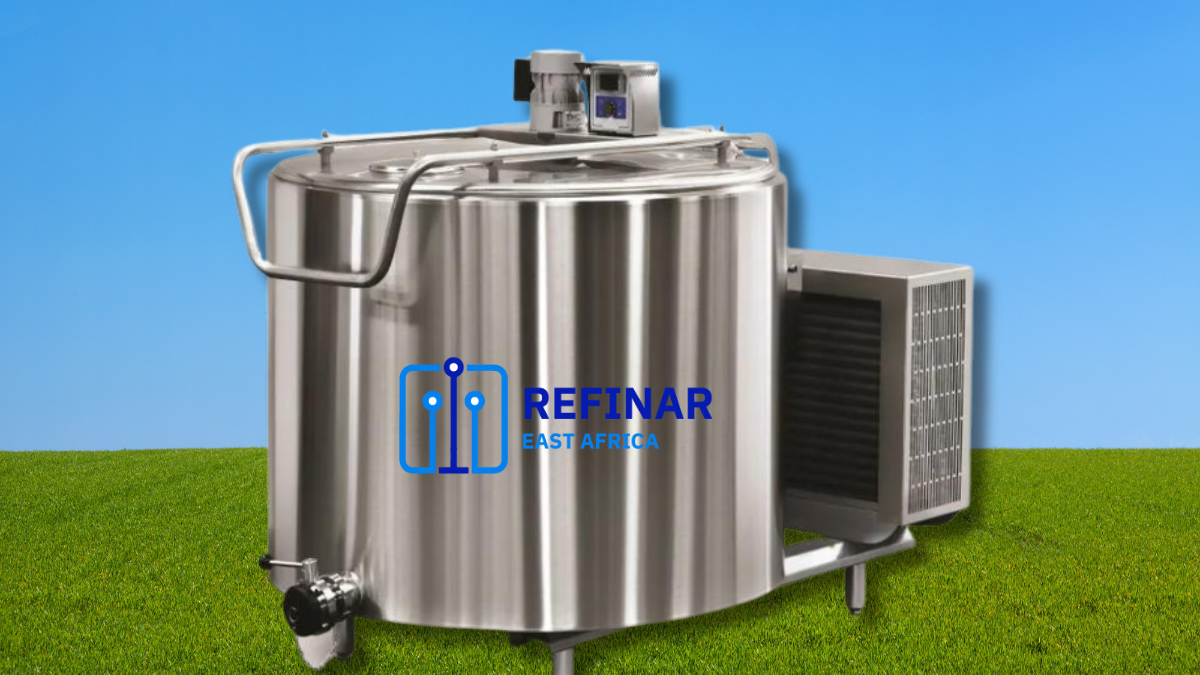If you’re engaged in the dairy industry or involved in milk processing, investing in a reliable milk chiller, is an indispensable step. These tanks serve a crucial purpose in maintaining the quality and longevity of raw or pasteurized milk, ensuring optimal storage conditions. This article provides dairy farmers with a comprehensive summary of the main advantages milk chillers offer, highlighting their essential function in contemporary dairy operations.
What is a milk chiller?
A milk chiller is a type of refrigeration equipment that is specifically made to keep milk’s freshness and quality by cooling and storing it at the ideal temperature. Milk chillers are essential for maintaining the quality of milk because they slow the growth of microorganisms. By taking this proactive step, milk keeps its freshness for a longer amount of time and may therefore be consumed for longer. These chillers enable dairy farmers to regularly provide their customers with premium, high-quality dairy products by preventing spoiling.
How does a milk chiller work?
Our Milk chillers work on the principle of refrigeration. The chiller has a compressor that compresses refrigerant gas, which then cools down and absorbs heat from the milk stored in the chiller. The cooled refrigerant circulates through coils or plates, cooling the milk inside the chiller.
What is the ideal temperature for storing milk in a chiller?
The recommended temperature for storing milk in a chiller is typically between 33°F to 38°F (0.5°C to 3.3°C). This temperature range helps to preserve the freshness and quality of the milk.
What are the benefits of a milk chiller in the Dairy Business?
Preservation of Freshness: Milk chillers help maintain the freshness of milk by keeping it at the ideal temperature range, extending its shelf life, and preventing spoilage.
Temperature Control: They ensure consistent and precise temperature control, safeguarding milk from fluctuations that can occur in regular refrigeration units.
Quality Maintenance: By keeping milk at optimal temperatures, chillers preserve the nutritional value and taste of the milk, ensuring it stays high-quality for longer periods.
Hygiene and Safety: Properly designed milk chillers provide a clean and sanitized environment, reducing the risk of bacterial growth and contamination, thus promoting food safety.
Increased Storage Capacity: Milk chillers come in various sizes, offering options for small-scale household use to large commercial operations, accommodating different storage needs.
Convenience: Having a dedicated milk chiller means having easy access to properly chilled milk at any time without the need for additional ice packs or refrigeration methods.
Reduced Waste: By prolonging the shelf life of milk, chillers help reduce wastage and minimize the need for frequent disposal due to spoilage, benefiting both households and businesses.
Energy Efficiency: Modern milk chillers often come with energy-efficient features, helping to save on electricity costs while maintaining optimal storage conditions.
Adaptability to Alternative Energy Sources: Some models can be adapted to run on alternative energy sources like solar power, making them more sustainable and eco-friendly options.
Versatility: While primarily designed for milk storage, some chillers can also be used for other dairy products or beverages, adding versatility to their functionality.
How long can milk be stored in a chiller?
When stored at the proper temperature, milk can generally be kept in a chiller for about five to seven days past its sell-by date. However, it’s essential to check for any signs of spoilage before consuming.
How often should a milk chiller be cleaned?
Regular cleaning is crucial to maintain hygiene and prevent bacterial growth. Depending on usage, cleaning every week or bi-weekly with sanitizing agents is generally advised.
What sizes of milk chillers are available?
Refinar East Africa Milk chillers come in various sizes ranging from small units to larger commercial-scale chillers suitable for dairy farms or production facilities
Are there any maintenance tips for a milk chiller?
Regular maintenance, such as checking and replacing worn-out gaskets, cleaning condenser coils, and ensuring proper ventilation, helps in the efficient functioning of the chiller. Periodic inspections by a professional technician are also recommended.
Can a milk chiller run on solar power or alternative energy sources?
Yes, some milk chillers can be adapted or designed to run on solar power or alternative energy sources, making them more sustainable and environmentally friendly.
Where can I purchase a milk chiller?
When looking for a milk chiller for your Dairy Business, it’s important to look for a good supplier with high-quality products and offers both maintenance and installation. We, Refinar East Africa manufacture and install high-quality milk chillers and coolers that are customizable to your needs. Talk to us at 0707075702 or info@refinareastafrica.com


